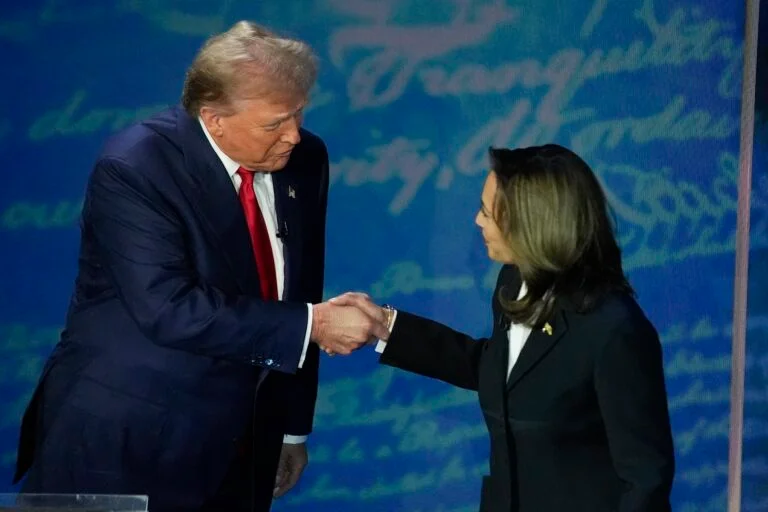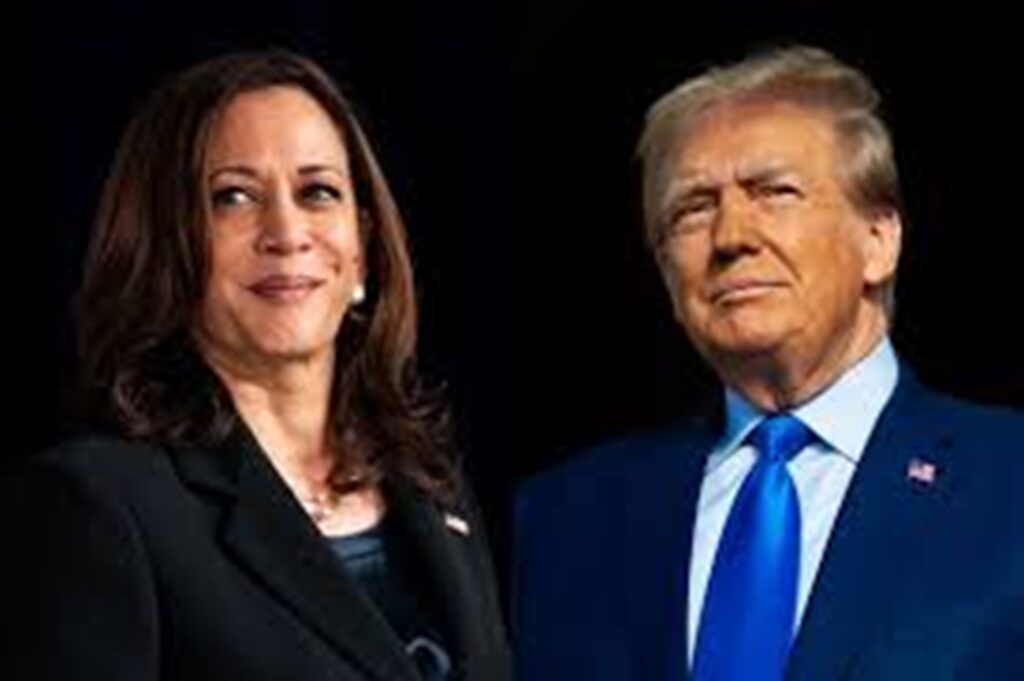
The US and China stand as the top two economies and possess the most formidable military forces globally. Many international analysts believe that the rivalry between the US and China will shape the 21st Century on a global scale.
Currently, only one of the major party presidential candidates consistently addresses US-China policy, a stance he has maintained for years. According to a JuicyBleast Verify analysis, Republican nominee Donald Trump has emphasized China extensively in his recent rallies, mentioning the country multiple times in each event.
In his speeches, Trump frequently highlights areas of tension between the US and China, portraying China as an economic threat and a dominant force in the global economy.
Is Harris or Trump, the Favourite Candidate?
He’s been discussing the new tariffs he intends to levy on imports from Chinese companies – and those from other nations – if he gets re-elected.
He has expressed his desire to block the sale of Chinese-made cars to prevent what he sees as harm to the American auto industry. He has cautioned China against trying to replace the US dollar as the world’s reserve currency. Additionally, he has held the Chinese government responsible for the Covid pandemic.
While some economists doubt the effectiveness of Trump’s tariff proposals and warn about their potential negative impact on US consumers, the Biden-Harris administration has upheld, and sometimes even raised, the more targeted tariffs imposed by Trump on China during his first term.
Trump’s protectionist stance is aimed at appealing to blue-collar voters in the crucial industrial Midwest swing states who have experienced the challenges posed by increased competition from Chinese manufacturers.
JuicyBleast Verify discovered that Kamala Harris, the Democratic presidential nominee, did not address China in any of her six recent rallies following the September 10 debate. However, during a speech on the economy in Pittsburgh, Pennsylvania, she made several mentions of the country.
In a statement during the event, Harris stated, “I will never hesitate to take swift and strong measures when China undermines the rules of the road at the expense of our workers, communities, and companies.”
Although Harris doesn’t frequently discuss China, an aide to the vice president mentioned to the New Men, that she has a history of countering China’s actions that threaten global stability and prosperity.
On the other hand, Trump’s approach to China on the campaign trail is notably different. In a recent gathering in Smithton, rural western Pennsylvania, Trump engaged in a roundtable discussion with local farmers and ranchers, focusing specifically on China.
Despite Smithton’s proximity to Pittsburgh, a Democratic stronghold, the event showcased strong Republican support, with signs and symbols endorsing Trump’s presidency visible in the area.
The event, organized by the Protecting America Initiative, centered on “the Chinese Communist Party’s growing threat to the US food supply,” evolving into a broad discussion on the overall threat posed by China. Participants highlighted issues such as competing with subsidized Chinese imports and the quality of Chinese products.

The former president didn’t dwell much on the potential risks of Chinese ownership of US farmland. Instead, he pledged to persuade Chinese President Xi Jinping to increase the purchase of US agricultural exports. He reiterated his commitment to using tariffs as a means to protect the American economy from China.
During a discussion, he highlighted the importance of safeguarding the US steel industry to be prepared for a hypothetical conflict with China. He questioned the feasibility of relying on China for essential steel supplies in the event of a war, emphasizing the need to maintain domestic steel production.
Richard Grenell, a participant in the roundtable and senior advisor for the Protecting America Initiative, took on a significant portion of the discussion regarding China. He cautioned that China has been working methodically against the US, especially when attention is diverted to other global matters.
Grenell noted that China has been targeting local and state officials as well as the manufacturing sector, with intentions to leverage these investments and activities in the future. Grenell, a former US ambassador to Germany and acting director of national intelligence under Trump, is seen as a potential candidate for the position of secretary of state if Trump secures another term in November.
In the event of a Harris victory, the approach to the US-China relationship may not see substantial changes from the current Biden administration, despite the current president’s tendency to use strong language when describing the rivalry between the US and China.

